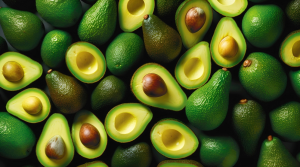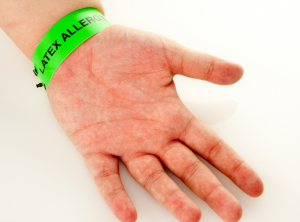5 Potential Risks of Eating Avocados You Should Know
Avocados have become a global favorite—whether spread on toast, blended into guacamole, tucked inside a burrito, or even used as a natural face or hair mask. Their creamy texture and health-boosting nutrients have made them a staple in countless households.
But while avocados are packed with heart-healthy fats, fiber, and vitamins, they’re not always risk-free for everyone.
In fact, both eating them and applying them to your skin can, in some cases, lead to side effects.
These effects may vary from person to person, which is why it’s worth knowing the potential risks before indulging.
Here are five things you should keep in mind about avocados:
1. Skin Irritation
Avocado oil is often praised for its moisturizing benefits and is used in face masks, hair treatments, and skincare products.

While it is generally safe and well-tolerated, some people may experience itching, redness, or irritation, particularly if the oil is combined with other ingredients like vitamin B12.
👉 If you’ve never used avocado-based skincare before, do a small patch test first. If irritation occurs, discontinue use and, if needed, consult a dermatologist.
2. Latex Allergy Cross-Reactivity
It may sound surprising, but people with latex allergies may also react to avocados. This is due to “cross-reactivity,” where proteins in avocados resemble those in natural latex.

If you have a latex sensitivity, it’s best to be cautious when consuming or applying avocado products, as reactions can range from mild itching to more serious allergic symptoms.
3. Stomach Sensitivities in Infants and Children
Some children, especially those with existing food sensitivities to milk, oats, or rice, may develop gastrointestinal reactions to avocado. Symptoms can include vomiting or diarrhea.

👉 When introducing avocado (or any new food) to babies, always serve it plain and by itself. This way, if a reaction occurs, you can identify the cause more easily.
4. Interactions with Medications
Like grapefruit, avocados can interact with certain medications. In particular, research has shown a moderate interaction between avocados and warfarin (Coumadin), a common blood-thinning medication.
Avocados may reduce warfarin’s effectiveness, potentially increasing the risk of complications.
👉 If you take warfarin or any medication for blood clotting, consult your healthcare provider before making avocados a regular part of your diet.
5. Pregnancy and Breastfeeding Considerations
Avocados are safe and nutritious for most pregnant and breastfeeding women when consumed in normal food amounts.

However, limited research suggests that large amounts of avocado may affect milk production in breastfeeding women.
👉 For expectant and nursing mothers, it’s best to stick to moderate amounts and always check with your doctor if you have concerns.
The Bottom Line
Avocados remain one of the healthiest fruits you can add to your diet, offering essential nutrients, healthy fats, and even beauty benefits.
However, like many foods, they may not be suitable for everyone.
If you notice unusual skin reactions, digestive issues, or are on medication, pay close attention to how your body responds.
When in doubt, speak with a healthcare professional to determine whether avocados are right for you.
✅ Key takeaway: Avocados are nutrient-packed and beneficial, but it’s important to be aware of possible risks—especially if you have allergies, are taking certain medications, or are breastfeeding.
Disclaimer: This article is for informational purposes only and should not replace professional medical advice.
Always consult a healthcare provider with questions about your health, allergies, or medication use.




























